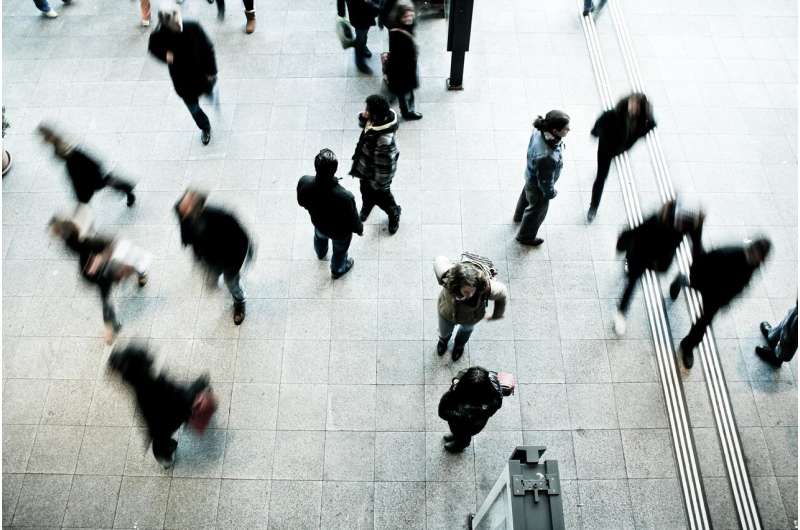Credit: Pixabay/CC0 Public Domain
After more than a year of restrictions, many people are apprehensive about socializing freely again. But for people with visible differences, and those who suffer appearance related anxiety, that thought might be particularly distressing.
Now the University of Plymouth and charity Changing Faces are promoting a 'life-changing' program called FaceIT@home to help people manage any appearance-related distress and anxiety.
Visible differences can range from cleft lip and burns to mastectomy or limb amputation.
The self-guided online tool, FaceIT@home, helps people manage any appearance-related distress and anxiety using a cognitive behavioral therapy (CBT) approach.
It started out life as FaceIT in 2012, and required referral from a health professional. Now the newly accessible online version has been warmly welcomed by charities and those living with visible differences.
FaceIT@home and the earlier, offline version were developed by Dr. Alyson Norman, Associate Professor of Clinical and Health Psychology at the University of Plymouth, in conjunction with the Center for Appearance Research at the University of the West of England, Bristol and Changing Faces.
Heather Blake, Chief Executive of Changing Faces, said: "As the UK's leading charity for anyone with a scar, mark or condition that makes them look different, we've been supporting our community throughout the COVID-19 pandemic. For many staying at home, reducing social interactions and wearing a face covering has provided welcome respite from the stares, comments and abuse that too many people with visible differences contend with daily.
"Now, as lockdown eases, anxiety about having to return to public situations is increasing. Our community survey, a snapshot of the views of people with visible differences, found a significant impact on wellbeing, with 65% of people saying their mental health is now worse than before the COVID-19 pandemic. With NHS wellbeing and mental health support services stretched now more than ever, it is so important that people with visible differences can use FaceIT@home. It's a free, access from home tool, that can provide support to someone when they need it, so they can live the life they want to lead."
Alistair Sutherland, who was born with a cleft lip and palate, said: "Using the FaceIT program was very easy, and I could go at my own pace. It was so interesting—I thought I knew it all about visible differences and this program really surprised me by bringing new and modern insights about how our physicality informs our internal life.
"The FaceIT program gives very good advice to people who feel isolated and stuck in a black hole. It's easy to say appearance doesn't matter, but it is very very important to people, especially when they're young. It helps to give that little bit of reassurance, which I think will be incredibly important when restrictions are lifted and people are socializing more freely."
Dr. Alyson Norman, who co-designed FaceIT@home, said: "Appearance is so fundamental to our everyday interactions—studies have shown that people make decisions about us in the first 10 seconds of meeting us. It amazes me how far we've come with the program and knowing there are people like Alistair that have used it, found it helpful, and it's brought them out of themselves to the point where they can engage socially is fantastic. Overall the feeling is that we've provided people with a lifeline to move forward socially and psychologically, which is amazing."
More information: FaceIT@home: www.faceitonline.org.uk/
Provided by University of Plymouth
























